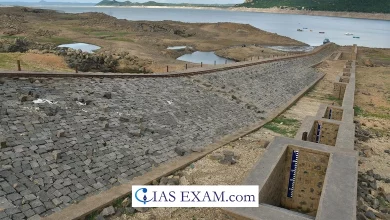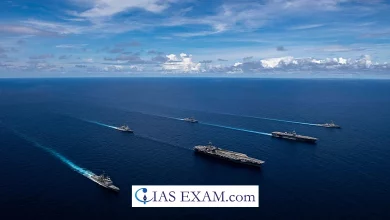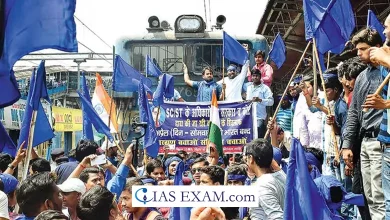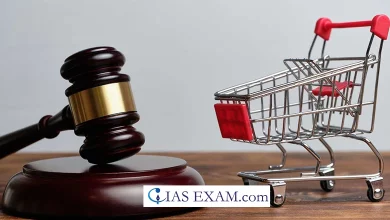Article 142 of the Indian Constitution
[GS Paper 2 - Indian Constitution, Judiciary]
Context – The Supreme Court has exercised the power conferred on it under Article 142 of the Constitution to order the release of former Prime Minister’s assassination convict A.G. Perarivalan.
About Article 142
Article 142 of Constitution of India deals with Enforcement of decrees and orders of the Supreme Court. It states that the Apex Court in the exercise of its jurisdiction may pass such decree or make such order as is necessary for doing “complete justice” in any case pending before it.
It is titled ‘Enforcement of decrees and orders of the Supreme Court and orders as to discovery,’ and has has two clauses:
- Article 142(1) –
- The Supreme Court in the exercise of its jurisdiction may pass such decree or make such order as is necessary for doing complete justice in any cause or matter pending before it.
- Any decree so passed or order so made shall be enforceable throughout the territory of India.
- It may be in such a manner as may be prescribed by or under any law made by Parliament and, until provision in that behalf is so made, in such manner as the President may by order prescribe.
- Article 142(2) –
- The Supreme Court shall have all and every power to make any order for the purpose of securing the attendance of any person, the discovery or production of any documents, or the investigation or punishment of any contempt of itself.
Historical Background
- When a draft Constitution was prepared by the drafting committee and placed before the Constituent Assembly, Article 142 was actually numbered as Article 118.
- It was placed before the Constituent Assembly on May 27, 1949 for debate but got adopted on the same day without any debate.
- This was possibly because everyone agreed that in order to ensure judicial independence, the highest court of the country must be empowered with plenary power to do complete justice.
Timeline and Case of A.G Perarivalan
- Perarivalan had submitted a mercy petition to the Tamil Nadu Governor in 2015 seeking release under Article 161 of the Constitution.
- After failing to receive a response, he moved the Supreme Court, which in 2018 underlined the Governor’s right to decide on the remission petition. But within 3 days i.e. in September 2018, all the 7 convicts including Perarivalan.
- The Governor, however, continued to sit on the recommendation, and in July 2020, Madras High Court reminded him that the Constitution had not prescribed a time limit for him to act on such issues only “because of the faith and trust attached to the constitutional post”, and warned that it might be forced to intervene.
- In February 2021, the Governor’s office forwarded the state government’s recommendation to President Ram Nath Kovind. The file has been lying with Rashtrapati Bhavan ever since.
- The Supreme Court has now ruled that inordinate delay by the Tamil Nadu Governor in exercising his powers under Article 161 can be subject to judicial review. It has rejected the Centre’s submission that the President has exclusive power to grant remission is cases pertaining to Section 302 (murder) of the IPC, and used its powers under Article 142 to release Perarivalan.
- In the case of Perarivalan, the Supreme Court invoked Article 142(1) under which
it was empowered to pass any order necessary to do complete justice in any matter pending before it.
Instances of Article 142 being used
- Bhopal Gas tragedy case – The SC awarded a compensation of $470 million to the victims and held that “prohibitions or limitations or provisions contained in ordinary laws cannot, ipso facto, act as prohibitions or limitations on the constitutional powers under Article 142.”
- Babri Masjid demolition case – The Supreme Court ordered framing of a scheme by the Centre for formation of trust to construct Ram Mandir at the Masjid demolition site in Ayodhya.
Liquor sale ban case – The Supreme Court banned liquor shops within a distance of 500 meters from National as well as State highways in order to prevent drunken driving.





.png)



